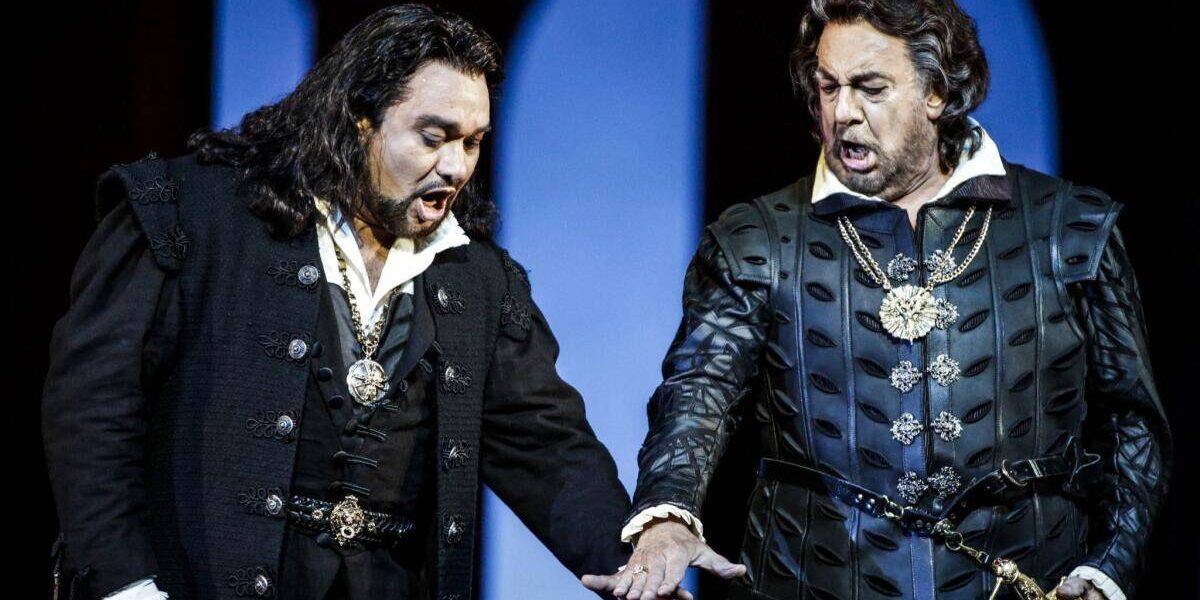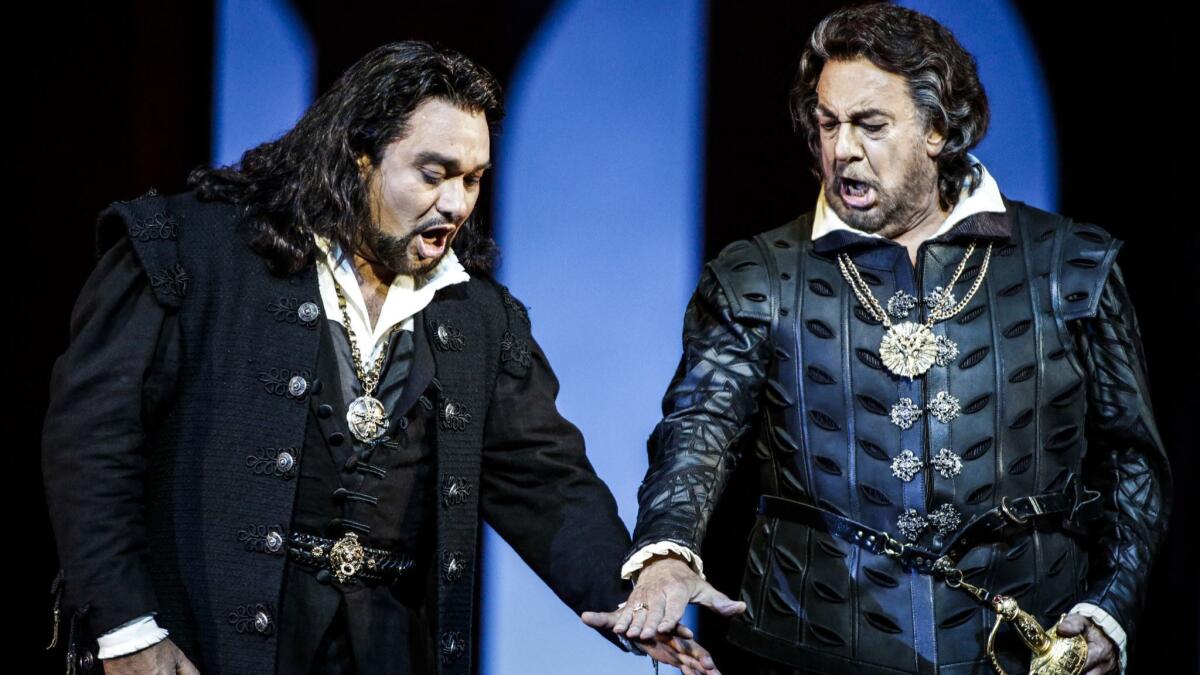Plácido Domingo and Don Carlo: A Journey Through Verdi’s Masterpiece
When speaking of Giuseppe Verdi’s monumental opera Don Carlo, one cannot ignore the immense role Plácido Domingo has played in bringing its emotional power to audiences worldwide. Throughout his legendary career, Domingo has performed in countless productions of Don Carlo, first as the impassioned and tormented tenor role of Don Carlo himself, and later, in his mature years, as the noble and sacrificial Marquis of Posa. This evolution not only highlights Domingo’s vocal versatility but also his deep understanding of Verdi’s musical and dramatic world.
Don Carlo: Verdi’s Towering Tragedy
Premiering in 1867 in Paris, Don Carlo is one of Verdi’s most ambitious operas. Based on Friedrich Schiller’s play, it presents a sweeping drama of politics, religion, friendship, and forbidden love in 16th-century Spain. With its grand choral scenes, emotionally charged arias, and heart-stopping confrontations, it is considered one of Verdi’s greatest achievements.
At the center of the drama is Don Carlo, son of King Philip II of Spain. His tragic love for Elisabeth of Valois—who becomes his stepmother after marrying Philip—sets in motion a tale of passion and despair. Alongside him is Rodrigo, Marquis of Posa, his loyal friend and confidant, who sacrifices himself in the name of liberty and friendship.

For a singer like Plácido Domingo, Don Carlo has always been fertile ground for artistic expression. The tenor role of Don Carlo demands soaring lyricism, youthful intensity, and heartbreaking vulnerability—qualities Domingo possessed in abundance during the height of his tenor career.
Domingo as Don Carlo – The Passionate Prince
Domingo’s early interpretations of Don Carlo established him as one of the leading Verdi tenors of his generation. His ability to balance vocal beauty with raw emotional delivery made his portrayals unforgettable. In productions at the Metropolitan Opera, La Scala, and Covent Garden, Domingo captured both the tenderness of a man in love and the despair of a son suffocated by political and familial duty.
His singing of arias such as “Io la vidi” (I saw her) conveyed youthful ardor, while his duets with Elisabeth and Rodrigo revealed his gift for dramatic connection. Perhaps most moving was his performance in the chilling prison scene, where Don Carlo’s despair and longing for freedom meet Verdi’s most poignant music.
Critics often noted Domingo’s ability to make Don Carlo not just a tragic figure but a relatable one. His warm, dark-hued tenor voice carried a noble vulnerability that perfectly suited Verdi’s conflicted prince.
Domingo as Rodrigo – The Mature Hero
As Domingo’s voice evolved, he made the remarkable transition from tenor to baritone repertoire. One of the most striking examples of this was his assumption of the role of Rodrigo, Marquis of Posa.
Rodrigo is a man of ideals, loyalty, and sacrifice—an equal to Don Carlo in importance and dramatic weight. In Verdi’s opera, Rodrigo’s friendship with Carlo is one of the most moving portrayals of camaraderie in all opera. His aria “Per me giunto è il dì supremo”—sung in his dying moments after taking a bullet meant for Carlo—remains one of Verdi’s most heartbreaking scenes.
Domingo brought to Rodrigo not only vocal authority but also decades of stage experience. His mature voice, with its burnished baritone timbre, carried immense gravitas. Audiences and critics alike marveled at how seamlessly he adapted to the baritone tessitura, all while bringing the same emotional depth that had marked his tenor interpretations.
Collaborations with Opera Greats

One of the most fascinating aspects of Domingo’s career in Don Carlo is his collaborations with some of the greatest singers of his time.
-
As Don Carlo, he often sang opposite sopranos like Montserrat Caballé, Mirella Freni, and Renata Scotto as Elisabeth of Valois. These pairings produced electric duets filled with passion and heartbreak.
-
As Rodrigo, Domingo has partnered with younger tenors stepping into the role of Don Carlo, passing the torch in a way, yet still dominating the stage with his charisma.
-
In productions conducted by maestros like James Levine, Claudio Abbado, and Riccardo Muti, Domingo’s artistry was elevated by orchestral interpretations that brought out the grandeur of Verdi’s score.
Perhaps most famously, Domingo performed Don Carlo in major opera houses alongside his fellow “Three Tenors,” José Carreras and Luciano Pavarotti—though not usually in the same cast, their reputations often intertwined, creating an era of vocal brilliance.
The Enduring Power of Domingo’s Don Carlo
What makes Domingo’s connection to Don Carlo so remarkable is its longevity. Few singers have the ability to embody both the youthful hero and the noble friend within the same opera over the course of a career. For audiences, this has provided a unique opportunity to witness the evolution of an artist in real time.
When Domingo sings Don Carlo, we hear the yearning of a young man trapped by fate. When he sings Rodrigo, we hear the wisdom of a man who sacrifices himself for ideals greater than his own life. Both roles complement each other, and both are enriched by Domingo’s unparalleled artistry.
A Legacy in Verdi
Plácido Domingo’s career has always been defined by versatility and longevity. From Puccini to Wagner, from zarzuela to French grand opera, he has mastered an astonishing range of repertoire. Yet his contributions to Verdi remain a cornerstone of his legacy.
In Don Carlo, Domingo has not only sung some of the composer’s most demanding music but has also embodied the opera’s central themes: love, loyalty, and the struggle for freedom. His interpretations remind us why opera endures—not only as entertainment but as a mirror of human experience.
Conclusion
Plácido Domingo’s journey through Don Carlo is one of the most extraordinary in opera history. From the passionate young prince to the noble and sacrificial friend, he has given audiences a complete vision of Verdi’s masterpiece. His performances continue to inspire new generations of singers and opera lovers alike, ensuring that both Verdi’s music and Domingo’s artistry remain immortal.
For anyone who has ever heard Domingo’s voice soar in Don Carlo—whether as Carlo or as Rodrigo—the memory lingers like the final echoes of Verdi’s score: haunting, majestic, and unforgettable.





